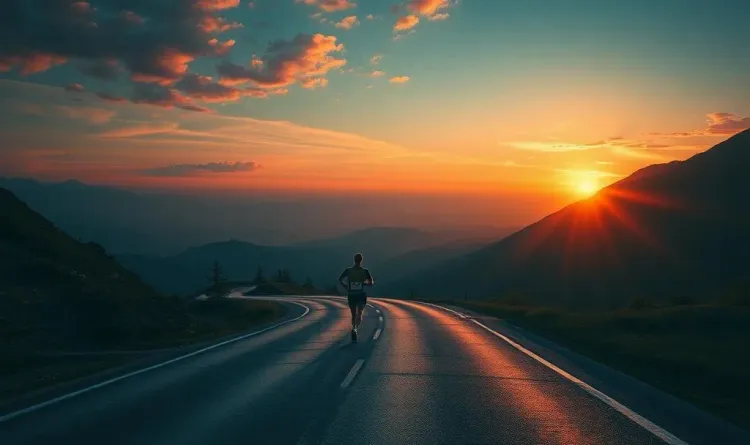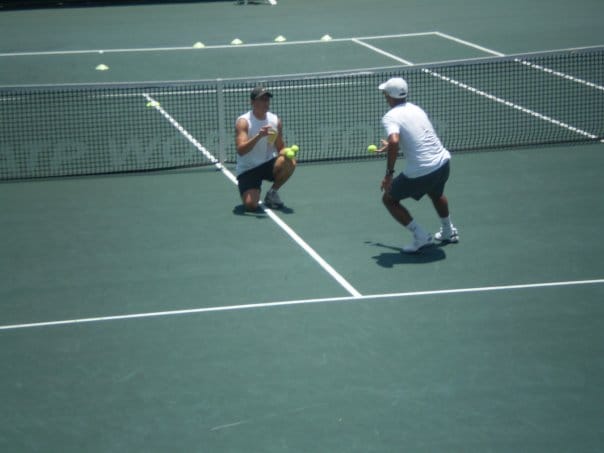Founder as Performance Athlete
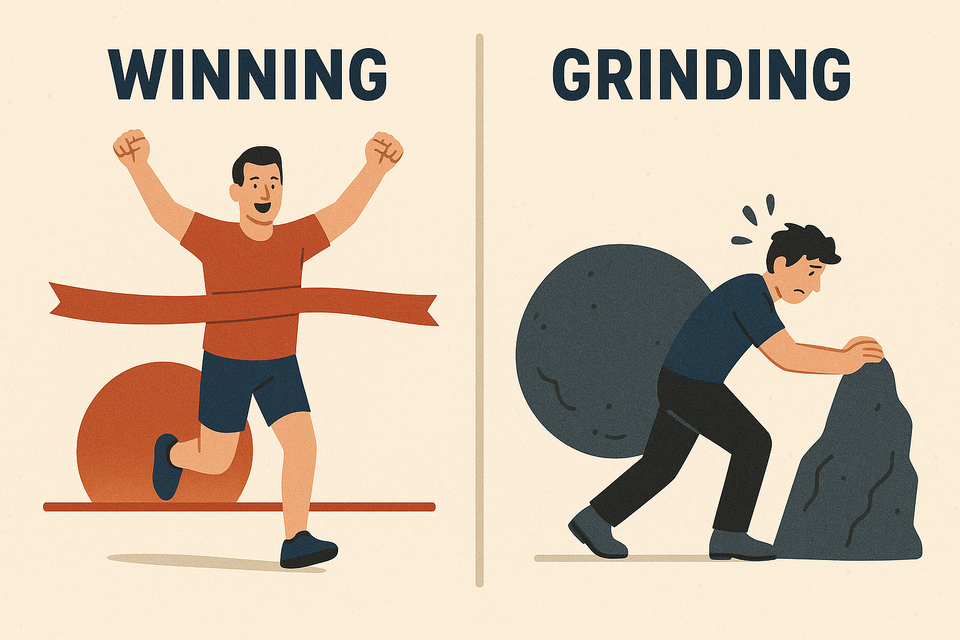
What Elite Sport Taught Me About Building Better Businesses
I’ve had the privilege to work with peak performance athletes (junior and senior) including ATP World Tour top 10 ranked tennis players. I’ve trained with some of the best of their time. I’ve seen what it takes to perform at the highest level, to fight through pain, to overcome the doubts, and to push through limits when the world wasn’t watching. The late nights, early mornings, Christmas morning off season practices when the rest of the world was having family time.
Today, I work with different kinds of performance athletes, founders and entrepreneurs. As during my days as a performance coach in sport, I never expected my athletes to do anything I haven’t experienced myself. Similarly so in working with peak performance founders. I have been in your shoes, I have worn all the different hats, I had all the sleepless nights, the anxiety attacks, and yes the moments of complete despair and loss when I lost everything.
Thanks for reading Beyond The Peak! Subscribe for free to receive new posts and support my work.
The similarities between the founder and athlete journey are not that unexpected yet I don’t find that the world founder mindset has been approached in nearly the same way as sport psychology and mental toughness training for athletes.
If you’ve ever built a business from scratch, pushed through rejection, iterated until your fingers bled, and kept showing up when the odds didn’t make sense—you’re an athlete too.
Now I would say one thing, in the world of sports things are a little more predictable and well researched. The scientific research over time, indicates that if you perform a certain number of repetitions of a specific movement at a specific intensity and velocity the output is pretty predictable. Of course injuries play a role and there are a lot of variables that could play a role, however in a startup and entrepreneurial environment things are a little more nuanced, a little less predictable which makes it really difficult to navigate.
The journey is also less linear and a waterfall approach will not work. Fortunately we find ourselves in an unprecedented era where our ability to be data driven and have more predictability is more than it has ever been in the past.
So without going on too much of a tangent, whether you realize it or not YOU ARE AN ATHLETE!
You just don’t acknowledge it yet or perhaps plan and train like one yet.
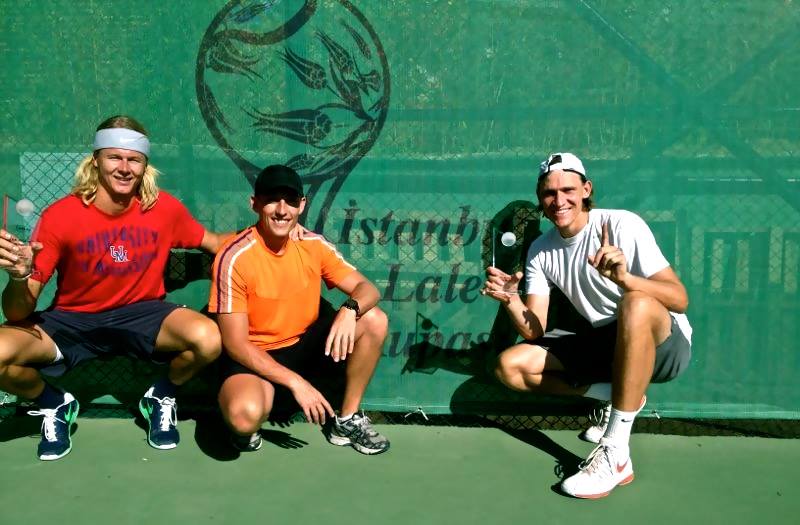
The Mental Load Is Real
What most people don’t see in high-performance sport is the sheer weight of the mental game. Physical training is the easy part. It’s measurable. Structured. You know when you’re getting better.
But the mental game? That’s where most break or just never find the breakthrough and remain average at best.
Dr. Jim Loehr, a world-renowned performance psychologist, has worked with hundreds of elite athletes and corporate executives. In his book The Power of Full Engagement, he explains that managing energy—not time—is the key to high performance.
Loehr writes:
"Performance, health and happiness are grounded in the skillful management of energy."
This concept comes to life in the story of Michael Phelps—arguably the greatest Olympian of all time. Phelps didn’t just train harder; he trained smarter. His legendary use of visualization became a cornerstone of his success.
According to his longtime coach Bob Bowman, Phelps would visualize every detail of his races hundreds of times before they happened—from his start off the blocks to his last stroke. He even visualized things going wrong so he’d be prepared to respond without panic. That level of mental rehearsal helped him stay composed during high-stakes moments—like when his goggles filled with water during the 200m butterfly in Beijing. He still won gold. Still broke the world record even when he wasn’t able to see the wall. He knew exactly how many strokes to the wall and literally broke the world record with his eyes closed.
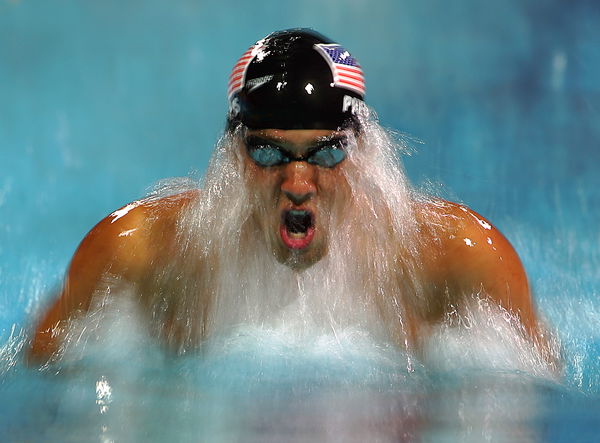
That’s the power of mindset training.
You can do the same as a founder: visualize hard conversations, prepare for chaotic product launches, and rehearse resilience for when things go sideways. Because they will.
In the world of startups, scale ups, or a regional small or medium enterprise, we obsess over time hacks and productivity tools, yet we ignore the energy crisis happening inside ourselves.
I’ve sat with founders who haven’t taken a full day off in months and even years in some instances. Others who wake at 3 AM with a racing heart, mind spiralling about burn rates or churn rates. Sound familiar? Not only have I had these conversations with many, I did the same and more than once reached serious burnout. The last time I pushed myself that far I promised to never do that to myself or those around me ever again, and if I can help in any way to help you not do the same, that is what I will do.
When I trained athletes, our periodization and training was planned to the T. Rest and recovery was not a nice to have, it was intentionally planned and scheduled. From sleep, to massages, to ice baths, to active recovery sessions. Breathing work, visualization, and pre-performance routines—not because they were trendy, but because they preserved mental bandwidth under pressure. We would mimic every thinkable situation in a training environment, from developing specific strength and power exercises that mimics on court movements to specific movement drills on court, to training early mornings and late nights to awful conditions like extreme heat or wind.
Entrepreneurs need the same toolkit.
Then, let’s talk about the loneliness elephant in the room when it comes to entrepreneurs. Athletes Don’t Train Alone and performance athletes never train without a coach, but yet we see this as the norm for founders and entrepreneurs.
So let me share a bit about my own story. After my biggest business failure, losing everything to a co-founder betrayal, I could have disappeared into shame. To be honest, the temptation was there and I almost did. I literally lost everything overnight with no backup or contingency. But my motivation for my wife and kids was bigger. I knew that giving up was not an option. Even though I had just lost everything I had worked for and built up and I was so burnt out and I didn’t know where I would gather the energy or the guts from, I knew I had to keep on moving.
I pulled back, I got quit, reflected, prayed and got back on the field. I was surrounded with a strong community, friends and mentors. I had no answers, but I could lean on them.
No Olympic athlete trains in isolation. Behind every podium finish is a village: coaches, nutritionists, psychologists, physiotherapists, training partners, mentors, and family.
Yet entrepreneurs often go at it alone. I hear this daily, “the journey is so lonely, no one understands”. It almost gets worn like a badge of honour, and don’t get me wrong. It is really freakin lonely if you are surrounded by people who really don’t get it. But tapping into a community that does understand, and who is committed is paramount.
"Everyone needs a coach. It doesn’t matter whether you’re a basketball player, a tennis player, a gymnast, or a bridge player."
—Bill Gates
Recovery Isn’t Rest. It’s Performance Strategy.
Recovery isn’t what you do when the work is done. Recovery is the work.
In sport, we use periodization—the science of alternating cycles of training stress and recovery—to ensure sustainable performance and avoid overtraining syndrome. This isn’t guesswork. It’s grounded in decades of research. What fascinates me is that this hasn’t been done for Entrepreneurs.
A 2016 review in the International Journal of Sports Physiology and Performance concluded that intentional recovery strategies are essential for maintaining long-term elite athletic output and psychological well-being.
So why do founders keep sprinting uphill indefinitely?
- No planned unloading cycles
- No boundaries around rest
- No downtime from notifications, always on
- No self-regulation routines
"You don't rise to the level of your goals. You fall to the level of your systems."
—James Clear
Even God rested after creating the world. Maybe we should take the hint.
Recovery is a system. Ignore it, and your performance will fall. It is not a case IF it will happen, it is a case of WHEN and how HARD it will hit you.
Identity vs Performance
During my coaching years with elite tennis players, I saw many fall apart after injuries. Not just physically, but existentially. Without tournaments, without training, without the applause, they didn’t know who they were or why they get up in the morning.
Entrepreneurs experience the same crisis.
You’re the founder of a VC-backed startup. Then your raise falls through. Or your MRR stalls. Suddenly, you’re not “crushing it” anymore. Who are you then?
Ben Horowitz, in The Hard Thing About Hard Things, speaks honestly about this:
"By far the most difficult skill I learned as a CEO was the ability to manage my own psychology... I didn’t realize it would be the most important one."
When your identity and self-worth are defined by business performance, your confidence becomes a hostage to market conditions. That’s not sustainable.
Your Body and Your health is Your Hidden Advantage
Your physical state is your strategic advantage. Or your silent saboteur.
Elite athletes train their bodies to fuel peak cognition. Founders must do the same.
"Your body is your first business. You are your first startup. And if you can’t sustain yourself, nothing else will sustain."
Dan Martell is known for advocating for physical fitness as core ingredient to business and financial success. Some mantra’s he lives by
"Exhaust the body to tame the mind"
"Fitness is the gateway drug to success"
"You're net worth will increase as your fitness does"
You Are an Athlete
You may not train on a track or swim in a pool, but if you’re building something from the ground up, facing hurdles and resistance, showing up under pressure, and sacrificing for a vision you are an athlete.
It’s time to start thinking, planning and training like one. If you fail to plan, you plan to fail.
Let go of the myth that you can do it all, all the time, on your own.
Find your team.
Prioritize recovery.
Get a coach.
Nourish your body.
Get Fit.
Untangle your identity.
Let me tell you a personal story. In the picture below you see me while “theoretically owning 6 CrossFit facilities, working minimum 12 hour days, broke as can be but grinding it out.
Hustling like you won’t believe. Worth celebrating right? Wrong!
I was thinking I am doing it for my wife and little man in the picture.
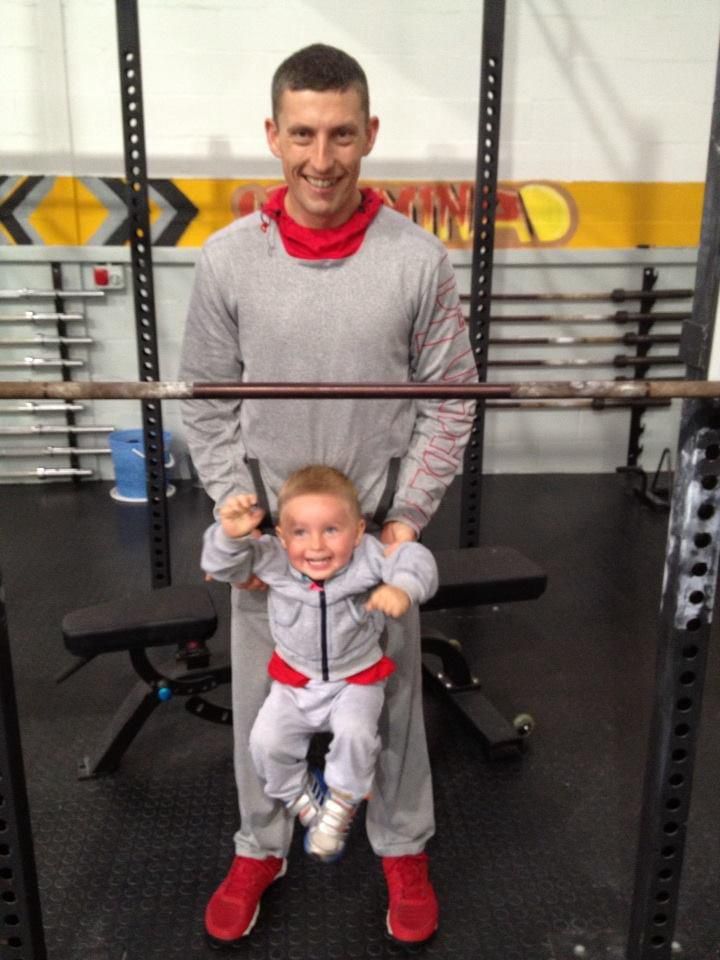
Less than a year after that I realized it was all a terrible nightmare. The past 2 years have been wasted. From successful sale of my previous business to losing my life savings. And by the way, I was on my way to having a paid off 4 bedroom house in a nice estate by age 35. In the blink of an eye everything was gone, all the hours, all the blood sweat and tears, all the time, effort and money invested. That made me realize once and for all that it is not worth it for all the money and success in the world.
But 12 years later I have come to realize something even more profound. It doesn’t have to be the one or the other. There will be times where things are out of balance, in fact I would say most of the time things are out of balance. So write off the work life balance fallacy.
The way I like to think about it, is an old school scale. When you go out of balance for a while because that is what is required, the one side will drop to the bottom. When it is over (and it needs to have an end state otherwise it becomes a problem) you spend time on the other end until equilibrium is restored.

The journey you are on is not a sprint, it is neither a marathon or even a triathlon. It is more like Grand Slam Tennis, a series of 5 set matches filled with high intensity points that requires a balance between explosive power, high intensity footwork, sprinting for sometimes 20-30 shots at a time with only 20sec between the next one comes. Whether it is over in 3 hours or 12 hours, you need to be able to put the last point behind you, refocus and bring the same level and intensity. And once that is over the next round is on you. Ok, I think you get the point so I will stop.
The journey you’re on is not just hard, it is long, and it is filled with many highs and lows. It requires someone with a serious high performance mindset who can take it on, go at it for the distance, and do so while enjoying the journey and maintaining a healthy engaged life outside of business.
"I dare you to move / I dare you to lift yourself up off the floor."
—Switchfoot, “Dare You to Move”
Don’t shrink back. Don’t grind yourself into the ground.
Train like what you’re doing actually matters.
Because it does.
Reflective Question:
What would change this week if you treated yourself like an elite performer—not just a business builder?
What if you became the best in the world at what you are doing, what would that look like and what would the impact of that be on the world around you?
Until next time,
Jaco
Thanks for reading Beyond The Peak! Subscribe for free to receive new posts and support my work.
